Filter by
# Debug Box
/var/www/htdocs/pustaka-digital/lib/SearchEngine/SearchBiblioEngine.php:688 "Search Engine Debug 🔎 🪲"
Engine Type ⚙️: "SLiMS\SearchEngine\SearchBiblioEngine"
SQL ⚙️: array:2 [ "count" => "select count(sb.biblio_id) from search_biblio as sb where sb.opac_hide=0 and (sb.call_number LIKE :callnumber)" "query" => "select sb.biblio_id, sb.title, sb.author, sb.topic, sb.image, sb.isbn_issn, sb.publisher, sb.publish_place, sb.publish_year, sb.labels, sb.input_date, sb.edition, sb.collation, sb.series_title, sb.call_number from search_biblio as sb where sb.opac_hide=0 and (sb.call_number LIKE :callnumber) order by sb.last_update desc limit 10 offset 180" ]
Bind Value ⚒️: array:1 [ ":callnumber" => "1%" ]
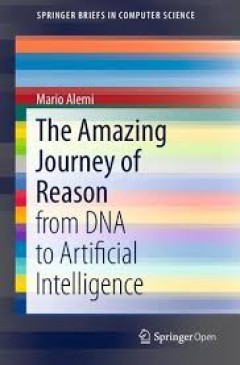
The amazing journey of reason : from DNA to artificial intelligence
This Open Access book explores questions such as why and how did the first biological cells appear? And then complex organisms, brains, societies and –now– connected human societies? Physicists have good models for describing the evolution of the universe since the Big Bang, but can we apply the same concepts to the evolution of aggregated matter –living matter included? The Amazing Journ…
- Edition
- -
- ISBN/ISSN
- 9783030259624
- Collation
- -
- Series Title
- -
- Call Number
- 155.7 ALE t
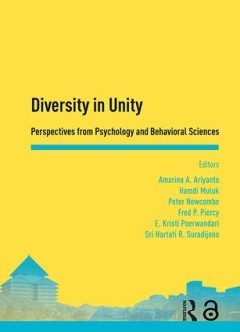
Diversity in unity : perspectives from psychology and behavioral sciences
The book highlights both the challenges and opportunities in the field of psychology and behavioral sciences, with an emphasis on identifying practical implications for professionals, educators and administrators, and researchers in Asia and Pacific regions. Societies in the said regions have experienced massive changes to their social system, changes that are endured by societies worldwide, su…
- Edition
- -
- ISBN/ISSN
- 9781138626652
- Collation
- xiv, 648p. : ill.
- Series Title
- -
- Call Number
- 150.7091823 DIV d
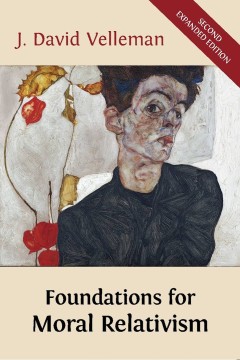
Foundations for moral relativism: second expanded edition
- Edition
- -
- ISBN/ISSN
- 9781783740352
- Collation
- xii + 144 p.; 23 cm.
- Series Title
- -
- Call Number
- 153.4 VEL f
- Edition
- -
- ISBN/ISSN
- 9781783740352
- Collation
- xii + 144 p.; 23 cm.
- Series Title
- -
- Call Number
- 153.4 VEL f
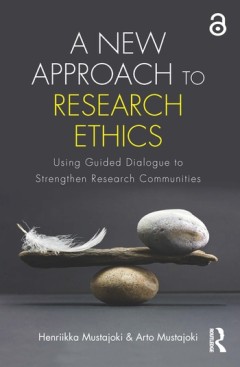
A new approach to research ethics : using grounded dialogue to strengthen res…
Ethics and Academic Research examines both theories of ethical decision-making as well as apply those theories to a broad range of situations and questions within a research career and process. The focus is not only on what is wrong, or in doing the actual research, it is a broader perspective on how ethics can be a positive force in strengthening the research community. Offering valuable guida…
- Edition
- -
- ISBN/ISSN
- 9781138682214
- Collation
- xvii, 236p. : ill.
- Series Title
- -
- Call Number
- 174.90014 MUS n

The Psychology of becoming a successful worker
- Edition
- -
- ISBN/ISSN
- 9781138787421
- Collation
- 156 p.; 23 cm.
- Series Title
- -
- Call Number
- 158.7 MAA p
- Edition
- -
- ISBN/ISSN
- 9781138787421
- Collation
- 156 p.; 23 cm.
- Series Title
- -
- Call Number
- 158.7 MAA p
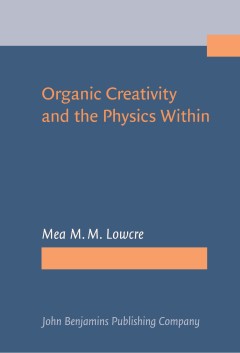
Organic creativity and the physics within
A group of international top scientists from a diversity of disciplines sat together for five days with artists, designers, and entrepreneurs to develop a trans-disciplinary theory of creativity. Organic Creativity and the Physics Within assumes that creativity is a quality of nature visible in physics as well as in psychology, its basis being combinatorics, coincidence, complementarity, and fr…
- Edition
- -
- ISBN/ISSN
- 9789027212030
- Collation
- 60p. : ill.
- Series Title
- -
- Call Number
- 153.35 LOW o

Human and machine consciousness
- Edition
- -
- ISBN/ISSN
- 9781783743018
- Collation
- 234 p.; 24 cm.
- Series Title
- -
- Call Number
- 150 GAM h
- Edition
- -
- ISBN/ISSN
- 9781783743018
- Collation
- 234 p.; 24 cm.
- Series Title
- -
- Call Number
- 150 GAM h

Internet research ethics
This anthology addresses ethical challenges that arise within the field of Internet research. Among the issues discussed in the book are the following: When is voluntary informed consent from research subjects required in using the Internet as a data source? How may researchers secure the privacy of research subjects in a landscape where the traditional public/private distinction is blurred an…
- Edition
- -
- ISBN/ISSN
- 9788202489519
- Collation
- 175p.: ill.
- Series Title
- -
- Call Number
- 174.90014 ENJ i
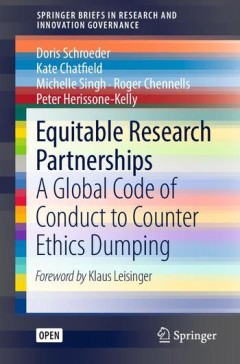
Equitable research partnerships : a global code of conduct to counter ethics …
This open access book offers insights into the development of the ground-breaking Global Code of Conduct for Research in Resource-Poor Settings (GCC) and the San Code of Research Ethics. Using a new, intuitive moral framework predicated on fairness, respect, care and honesty, both codes target ethics dumping – the export of unethical research practices from a high-income setting to a lower- o…
- Edition
- -
- ISBN/ISSN
- 9783030157456
- Collation
- xix, 122p : ill,
- Series Title
- -
- Call Number
- 174.9 SCH e
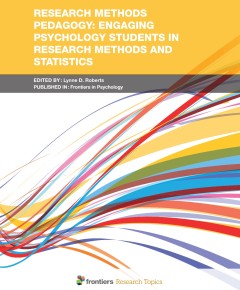
Research methods pedagogy : engaging psychology students in research methods …
Research methods and statistics are central to the development of professional competence and evidence based psychological practice. Furthermore, the ability to interpret and apply research findings contributes to the development of psychological literacy, the primary outcome of an undergraduate education in psychology. Despite this, many psychology students express little interest in, and in s…
- Edition
- -
- ISBN/ISSN
- 9782889450107
- Collation
- 102p. : ill.
- Series Title
- -
- Call Number
- 150.72 RES r
 Computer Science, Information & General Works
Computer Science, Information & General Works  Philosophy & Psychology
Philosophy & Psychology  Religion
Religion  Social Sciences
Social Sciences  Language
Language  Pure Science
Pure Science  Applied Sciences
Applied Sciences  Art & Recreation
Art & Recreation  Literature
Literature  History & Geography
History & Geography